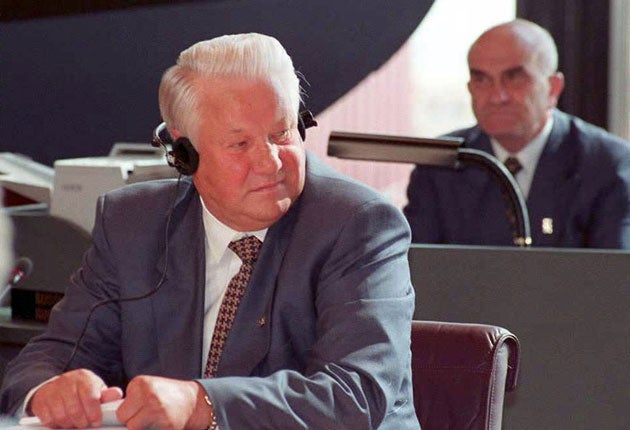Sarah Sands: Lost and found in translation
Knowledge is power – especially when it comes to languages

The globalisation hitch is that the people of the world speak approximately 6,700 languages.
Each mistranslation is a setback in human relations. For instance, the telegenic young explorers Mark and Olly went to live with an Amazonian tribe for a reality television series. The tribe was alleged to have said: "We use arrows to kill outsiders who threaten us." According to anthropologist viewers who, against the odds, spoke the same dialect, what the tribe actually said was: "You come from far away where lots of gringos live."
The popularity of the gap-yah survival television genre depends on cultural contrast and squeamishness. We want our plucky, muscular, floppy-haired young men to eat maggots and undergo extreme piercing. There should be an underlying, Prince Philip-like amused astonishment at foreigners, followed by a moment of reflective platitude.
If the life swap deposits you among moderate people who ask if you had a pleasant journey, then you are fast losing television altitude. A frantic producer will ask if it is time for the penile mutilation ceremony yet.
There is travel, and then there is the "travel experience", which is meant to be life-changing. We are either in search of National Geographic or "Paradise". This assumes that humanity as well as nature is utterly different but benign. The couple who took their vows in the Maldives were shocked to find – when friends watched the wedding video on their return – that the smiling hotel staff who acted as witnesses were actually calling them swine and infidels.
As always, knowledge is power. There must be a book in the role of translators in diplomatic relations. I have often wondered at the courtesies extended to visiting statesmen by dictators. Sometimes it may only be the translator keeping the show on the road. Similarly, I am sure our firm questions on human rights must lose their purpose in translation. I suspect everyone ends up sounding like George Galloway in his ingratiation of Saddam Hussein.
If you ever doubted the art of translation, remember that Wendi Deng was Rupert Murdoch's interpreter in China before she became his wife. And we know how fast she is on the draw. When Murdoch said tenderly that his wife and their daughters spoke Mandarin at home, telling him only what they wanted him to hear, I had no doubts about the future of the News Corp empire. The rest of them don't stand a chance.
Bad translations are a headache for corporations and provide after-dinner speech anecdotes for politicians. Language teachers adore them. Every school child can tell you that Ich bin ein Berliner means I am a doughnut, however much grammarians argue that President Kennedy was correct.
I have heard many times the story of the television journalist who enraged Boris Yeltsin by comparing him to a hippopotamus, by which he meant that he had thick skin. When I worked at Reader's Digest, published in many countries, we were in constant search of phrases which amusingly unravelled as they travelled. I particularly liked the failure of the mobile phone slogan "The Future's Bright, the Future's Orange" to grasp the political sensitivities of Northern Ireland. The language of text provides felicitous new solecisms. A message of condolence can end "lots of love" (lol) which also stands for "laugh out loud".
Translation gaffes work because we are still slightly suspicious of linguists. Whenever the Newsnight presenter Emily Maitlis is described as a Mandarin-speaker, it sounds as if she acquired mysterious Wallis Simpson-like "skills" which we had better not talk about. Yet we should not underestimate the career-enhancing effect of a good translation. Just look what happened to John Wycliffe.
Sarah Sands is deputy editor of the London Evening Standard
Join our commenting forum
Join thought-provoking conversations, follow other Independent readers and see their replies
Comments
Bookmark popover
Removed from bookmarks